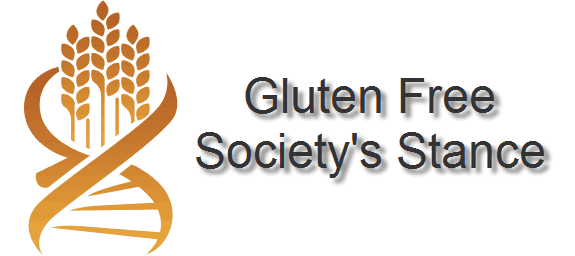new to the gluten free journey?
new to the gluten free journey?
Unexpectedly, a sequence from omega-gliadin (wheat) and C-hordein (barley) but not alpha-gliadin was immunodominant regardless of the grain consumed.

complete recovery with no relapses, no deaths, no crisis, no pulmonary involvement and no stunting of growth.Because all grains contain gluten (in different forms), and only a fraction of these glutens have been studied, it is foolish to assume that traditional “gluten free” grain based substitutes are safe for consumption for the gluten sensitive individual. Consider the following research conclusion:

Stay up-to-date with the latest articles, tips, recipes and more.

*These statements have not been evaluated by the Food and Drug Administration. This product is not intended to diagnose, treat, cure or prevent any disease.
If you are pregnant, nursing, taking medication, or have a medical condition, consult your physician before using this product.
The entire contents of this website are based upon the opinions of Peter Osborne, unless otherwise noted. Individual articles are based upon the opinions of the respective author, who retains copyright as marked. The information on this website is not intended to replace a one-on-one relationship with a qualified health care professional and is not intended as medical advice. It is intended as a sharing of knowledge and information from the research and experience of Peter Osborne and his community. Peter Osborne encourages you to make your own health care decisions based upon your research and in partnership with a qualified health care professional.
18 Responses
great article! thank you for sharing! i hope this info becomes more and more standard in the medical community!
I don’t understand why buckwheat is in question since it is my understanding that buckwheat is in the rhubarb (fruit) family. I was under the understanding that buckwheat wasn’t a grain in any way. I understand rice and corn contain their own gluten, therefore are under question (rightly so), but why buckwheat?
This is great to see. After taking gluten out of my diet (wheat, barley and rye) I discovered that corn and oats also cause the same symptoms. I am now on a grain free diet.
Hi Kathrine! What is your grain free diet plan. I am vegan looking for grain free options . Thanks
Yes, I agree with Jill. Buckwheat is not a grain, so why is included in this article?
They did not mention quinoa.
This article is quite old– 1995. Is that the most recent article you could find on the topic? If so, why has no one researched this further?
Sabrina,
The 1995 article is only one reference. The newer article referencing new glutens was published in 2010.
Glad to see that the research is still progressing. It’s really hard to believe that we still know so little about gluten and it’s different forms/effects. Now that allergies, celiac’s disease, & autism all point to gluten and the rates are rising rapidly, I hope that more money is flowing into this research area.
Nori
I’m not surprised; grains do affect me, I should have realized there was more going on than just discomfort. But I have to wonder why my follow-up biopsy looked good. I do see that this news is going to be very bad for the GF industry.
Hi,
I am realy struggling with stopping eating wheat products at this time knowing that I have sensitivity to gluten. Is there anything you can think of that could shock me into “getting real,” and stopping this behavior. Last year pretty much the whole year I was able to do it, but this year has been a terrible seesaw with predictably bad results in health and weight.
Thanks. Harriet
Harriet,
Do you love yourself? Do you have a family? If so, do you love them? Do you love God?
If the answer to any of the above questions is yes, stop making excuses and “get real” with following the diet. You will end up hurting those you love unless you start taking it more seriously.
Let me know when it turns around.
All the best,
Dr. O
I would also be interested to know if quinoa is gluten free……i am new to the gluten free diet and understood it to be a safe grain ? same with the buckwheat.
Chrisanya,
Watch the first video under the Glutenology tab.
I have celiac disease and have been gluten-free for a year now. Just a few days after going gluten free, I was a totally different person. I do eat corn and rice with no problems. Does that mean that it is safe for me to do so, or does it mean that I might be causing some damage that I am not feeling?
@ Peggy,
No outward problems does not mean no inward problems. If you are gluten intolerant, don’t eat grain. Have you watched the Glutenology Video #1? (above under glutenology tab)
The video explains why in detail.
Thanks for sharing your story with us!
Dr. O
Hi:
Good article – as someone with celiac disease and a GF website owner. I would be particularly interested in all those who are performing research on other grains that indeed have the problematic protein!
I must say that I have not noticed overt symptom problems after consuming things like rice, buckwheat, quinoa, etc. But this doesn’t mean there aren’t any problems; it will take a confirmatory upper endoscopy.
And, to Harriet – look on it as an adventure. Learning to eat a variety of grains – many just as healthy as wheat, such as amaranth, buckwheat, and quinoa — is always going to be better than eating just one grain – wheat – anyway. Eating more beans, nuts, and veggies has also got to be healthier. Please see my site for an analysis of an oft-controversial issue, GF and weight loss –
I welcome any and all research studies re other grains that may contain problematic gluten proteins!
-K
I use quinoa & amaranth (both in goosefoot or beet family) most for home use, & a variety of grains (sorghum, teff (both closer to millet) for (rarer) baked goods … I agree with K’s suggestion of using more variety, & observing what you react to. I think I’ve read that buckwheat is often cross contaminated – & it is a different family …
I’m growing quinoa & amaranth, & collected seed from their perennial relative ‘Good King Henry’
http://www.dailynews.com/ci_17727804 has some nice quinoa recipes – am still looking to see if I can find more info on gliadans in quinoa!
Gluten Free RN recommends folks who are highly reactive go grain free for a time, as they’re healing.
Hi
Thank you to everyone for their informative posts. I was told by doctors 5 years ago I had IBS, and have had many cameras to investigate this conclusion. Only to find out by trial and error that it was our friend gluten that was trying to inflate me like a Zeppelin. As Iike your good selves I’m still on a journey of discovery and have found starchy foods like potatoes white rice do have a trigger response to my gut. But one of my favourite grains that has NO inflammation effect to me is brown rice. Also Greek NATURAL yogurt is a nice alternative to taken Meds when you been Gluten’end. I look forward to reading more of your post.
Jeff